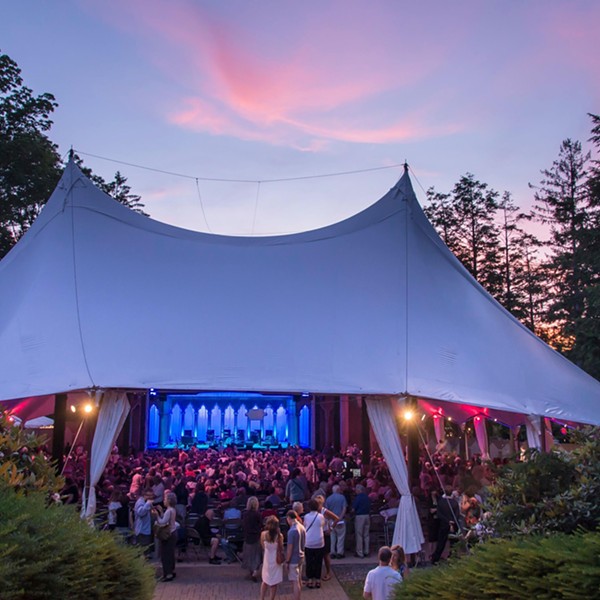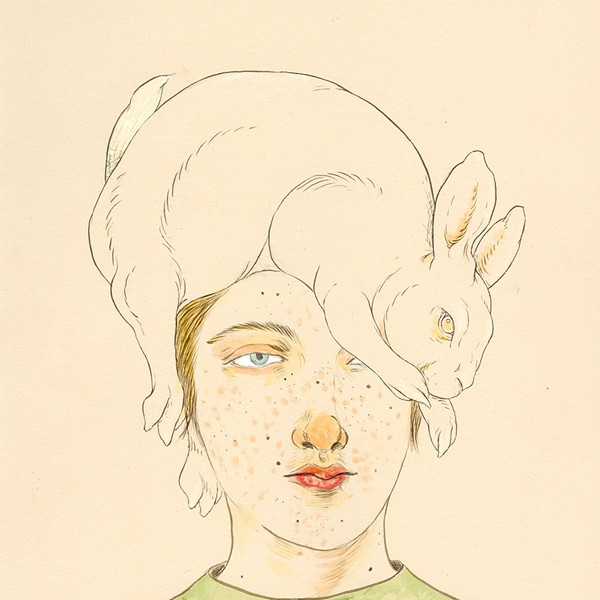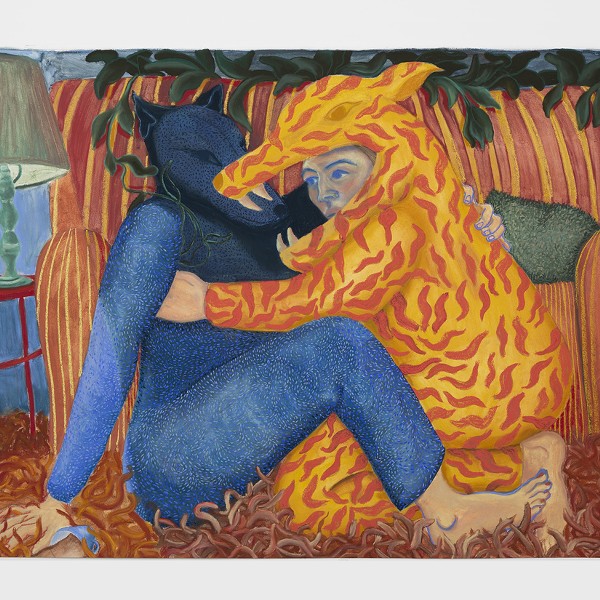“Working with The Hunger Mountain Boys has been a great experience, totally,” says Mack. “Their level of musicianship is just so high, it’s a pleasure just to watch them play. And their songcraft is just amazing. On their records, the split might be 50 percent covers and 50 percent originals, but unless you already know the tunes it’s hard to tell which is which. They never sound like they’re trying to be old-time, they just sound real; their whole thing is totally authentic. But they’re still pretty open-minded guys, always game for a little experimentation.”
In 2006, the band added Beacco’s and Weber’s old buddy Downing in time to record the appropriately named Three (Old-Fi Records) in Beacco’s basement studio. And the music itself expanded, bringing in elements of ragtime, early jazz, and Western swing. The trio started touring more out West, down South, and overseas, amassing elated new fans on mainland Europe and in the British Isles, where the group has perhaps found its warmest reception outside the US. And in addition to their band’s sharing the stage with some of their heroes—Ralph Stanley, Doc Watson, Taj Mahal, Jim Lauderdale, Del McCoury—the members have even guested on records by hot whippersnappers like Neko Case and Devendra Banhart.
Recently, the band has begun gearing up for yet another lineup change. With baby number two on the way, Beacco unsurprisingly isn’t able to tour as much as before, so the band has drafted in ex-Crooked Jades fiddler and mandolinist Adam Tanner to fill his shoes—making The Hunger Mountain Boys a veritable old-time supergroup.
But Weber and Downing hope Beacco’s time off isn’t permanent. “Our dream is to have him come back and for us to be a quartet. We’ll see what happens,” Weber says. “But we at least hope to do some regional shows and to record with both Kip and Adam.” During the periods when Beacco’s familial duties have kept him off the road, Weber and Downing have marked time with The Blue Ribbon Boys, a band that developed more or less concurrently with their main group and whose repertoire includes blues, swing, klezmer, and novelty-pop tunes in addition to early country.
In the wake of 2000’s hit film O Brother Where Art Thou and its millions-selling, old-time-dominated sound track, a new generation of youthful roots-revisionists has popped up: Old Crow Medicine Show, Crooked Still, The Wiyos, King Wilkie, The Shiftless Rounders, The Crooked Jades, Eilen Jewell, the list grows. But do we really have only the Coen Brothers to thank for this welcome wave?
“No, I think the O Brother thing was really just a matter of timing,” Weber says. “A certain amount of younger people were just ready for this music. It’s why you see a lot of these sort of vagabond, ex-punk-rocker types wandering around with fiddles and banjos. It’s the simplicity. You can just buy a banjo and start out by learning a few easy tunes.
“Plus, it’s just such social music,” he adds. “Some of the best times I’ve had in my life have been with the guys in this band, playing this music. Whether we’re on stage, or just driving along at two o’clock in the morning listening to Django Reinhardt. I love it.”
Traditionally, whenever there’s been a rise in technology, there’s also been an equal and opposite reaction against it: Witness the aesthetic Arts and Crafts movement during the Industrial Revolution or the folk-music boom on the heels of the Jet Age. Today it’s the explosion of the Internet, although, ironically, the growth of the Web has, like that of radio in the ‘20s, immeasurably helped to spread old-time music. “It’s true. Can you imagine promoting a band now without the Internet, cell phones, all of this stuff?” Weber ponders. “It makes it so much easier.”
So how did he and his young bandmates come to discover this seemingly forgotten music in the pre-MySpace age? “For me, it was by listening to ‘A Prairie Home Companion’ on NPR around the house when I was a kid,” Weber says, adding, “That was my ‘Grand Ole Opry.’” (Although the group hasn’t yet realized its collective dream of performing on the Garrison Keillor-hosted program, the Weber-Beacco lineup won a songwriting contest sponsored by NPR’s popular “Mountain Stage” and played on that show in 2003.)

















